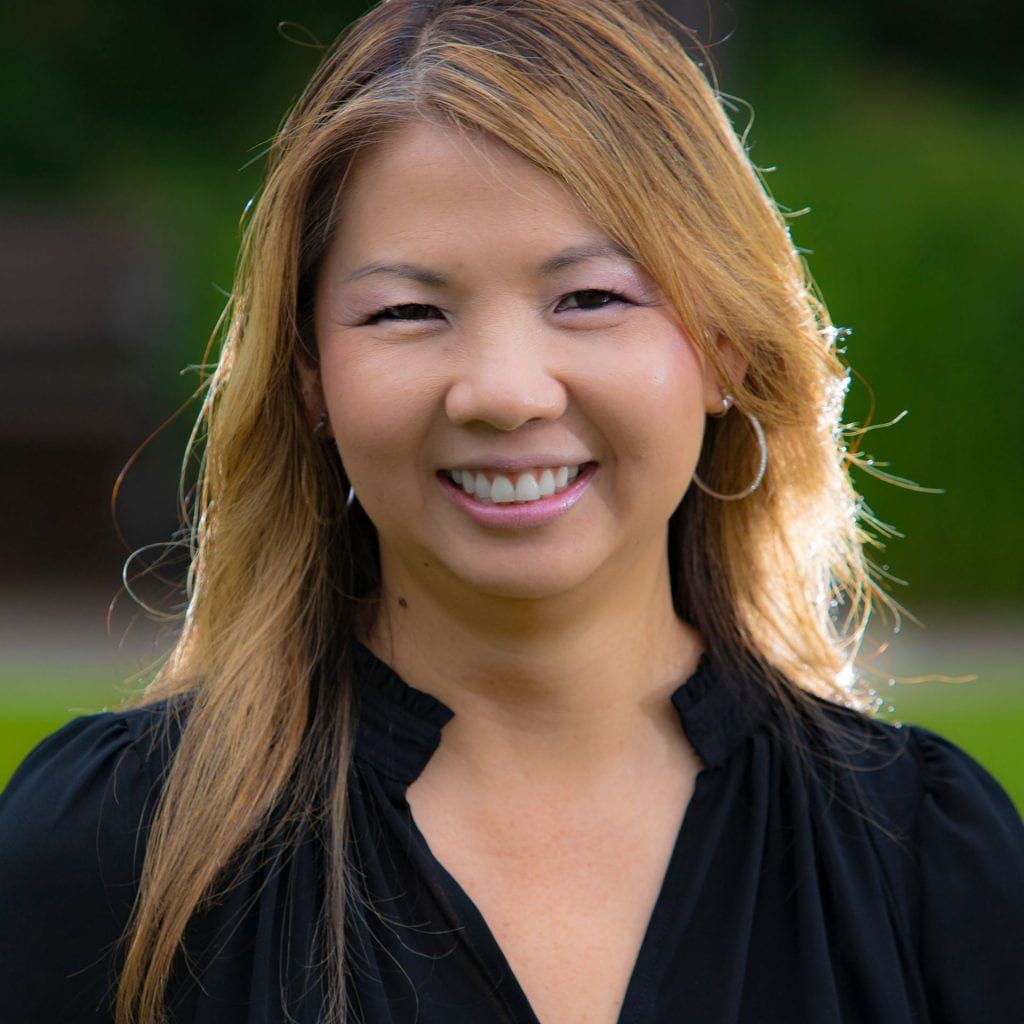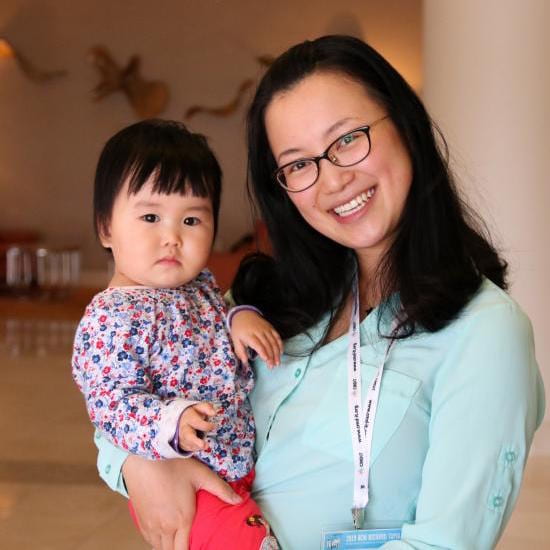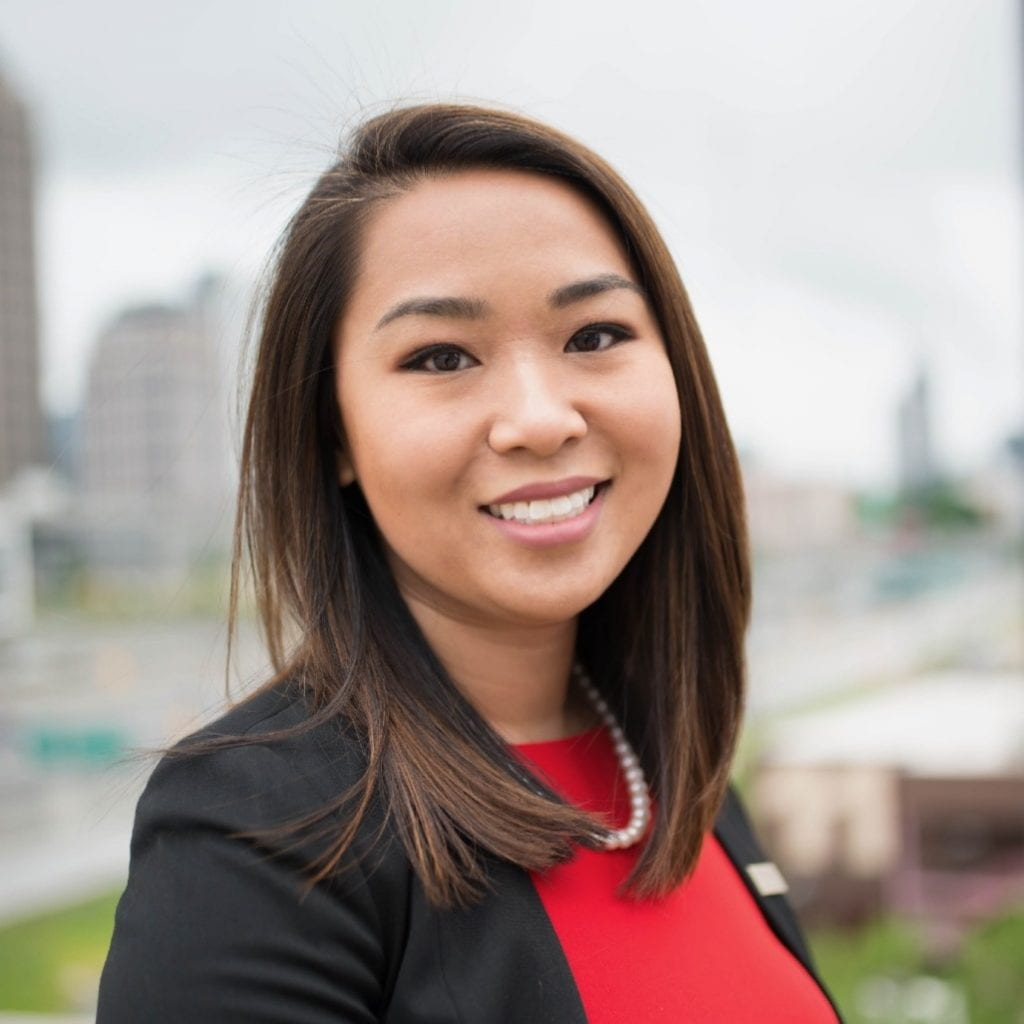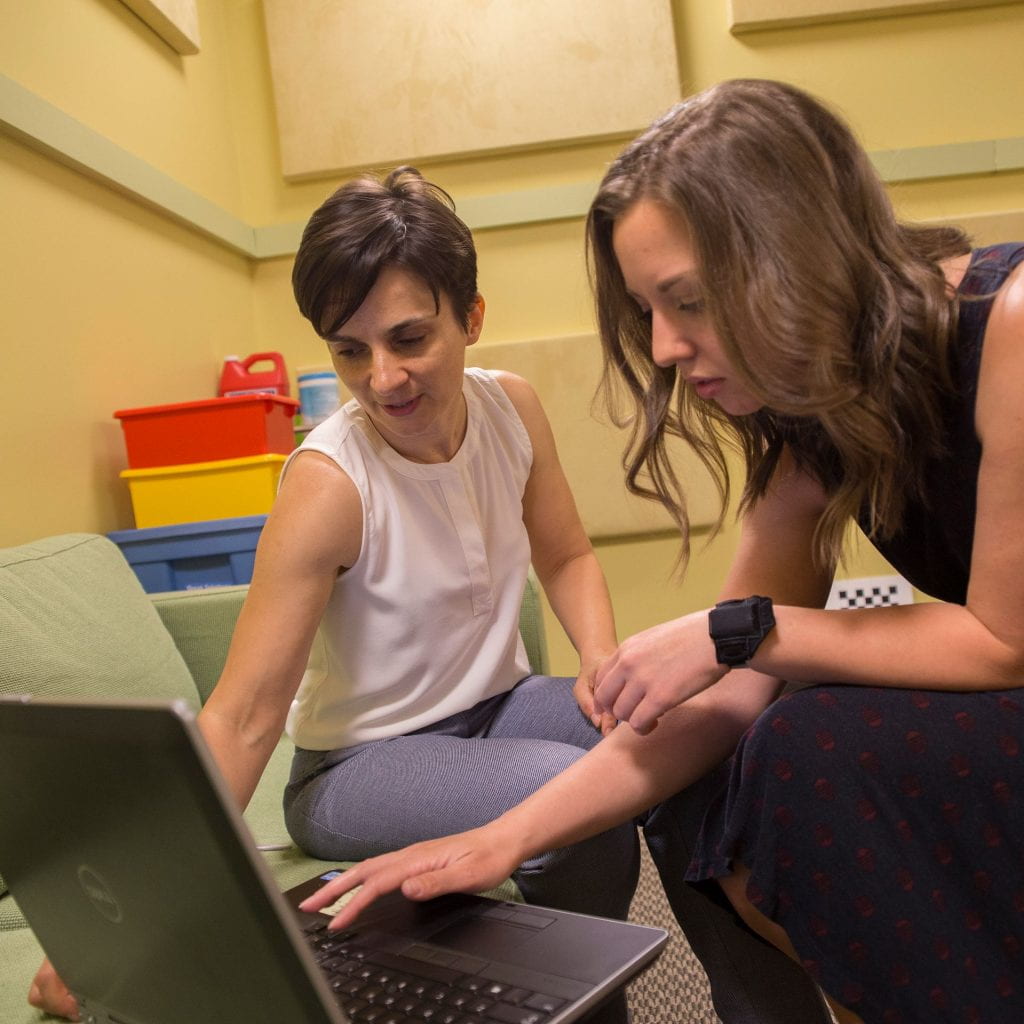Leading in the Lab and Beyond
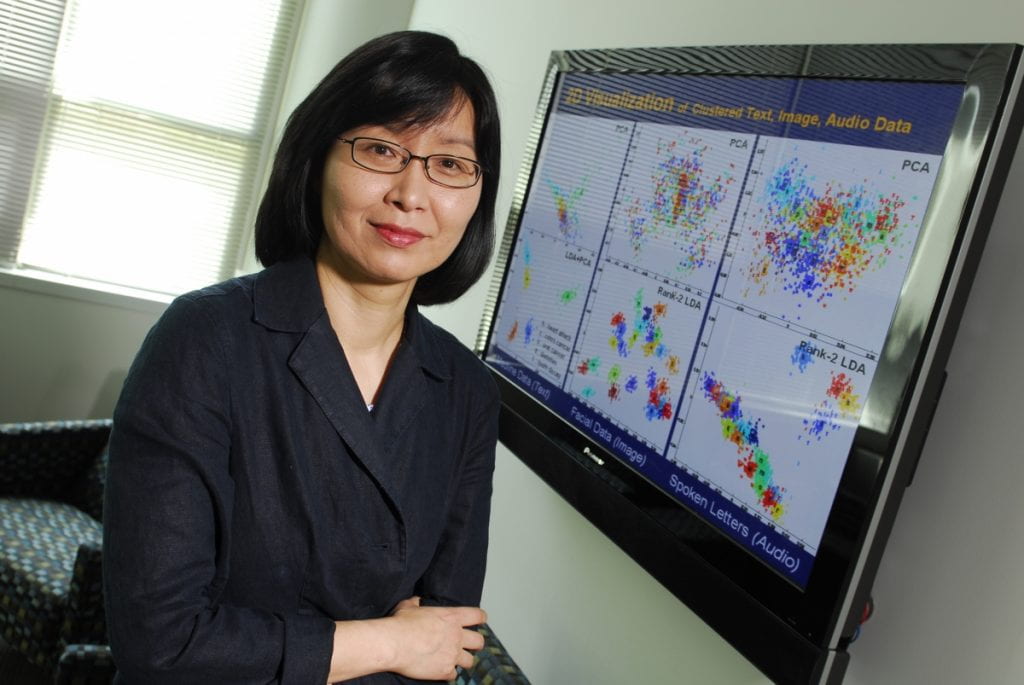
School of Computational Science and Engineering Chair and Regents’ Professor Haesun Park is no stranger to being a pioneer throughout her career.
Growing up in South Korea, Park was always drawn to computer science, a field that many at the time saw as being uncertain, especially in contrast to a career in medicine or law. Despite societal pressures to pursue more traditional degrees, Park was steadfast in her mission to pursue both mathematics and computer science and went on to graduate from Cornell University with a Ph.D. in Computer Science.
She is now regarded as an international expert in the areas of numerical computing, data analysis, and visual analytics. During her research journey, she also served as a founding member of CSE and helped form unique M.S. and Ph.D. programs that paved the way for the discipline of CSE to become an accepted stand-alone academic discipline.
Throughout her professional history, Park has also claimed a number of prestigious titles including being named a Society for Industrial and Applied Mathematics (SIAM) Fellow, Institute of Electrical and Electronics Engineers (IEEE) Fellow, Association for Computing Machinery (ACM) Fellow, Director of the NSF/DHS funded Foundations of Data and Visual Analytics research initiative, and more.
Now, Park has added another impressive title to her long list of accomplishments: Being the first woman in the history of the school of CSE to hold the chair position.
Despite this exciting new role, becoming chair was never part of Park’s original goals. However, as she claims, this will probably turn out to be the most important work that she will contribute to society.
Leading for More Than Research
Park had not been seeking an administrative role, she said, and was happy with teaching and research. Deciding to pursue the chair position took a lot of thought.
“Throughout my years of being at CSE, I have come to know the staff and faculty in the school very well and I decided I wanted to dedicate the next stage of my career by leading us and serving them.”
“I concluded that serving as the CSE chair would be the most important legacy when looking back on my career due to two important factors: The people of CSE and where the discipline of CSE is in general,” she said.
“Throughout my years of being at CSE, I have come to know the staff and faculty in the school very well and I decided I wanted to dedicate the next stage of my career by leading us and serving them.”
Another major factor in Park’s decision to trade her research hat for an administrative role was the discipline of
computational science and engineering itself. According to Park, the discipline is at an important turning point thanks, in part, to the establishment of the school and the subsequent recognition of CSE as an independent area of study.
“Now, the future of CSE is even brighter than at the time of the school’s beginning, and that is due to wide acceptance of the role of computing and data science and their broad impact,” She continued.
“And as a group, we are representing CSE nationally and internationally because we are very unique. When you think about other institutions, CSE is mostly represented in the forms of centers or programs, but rarely in the form of a department. As a department, I strongly believe we have a mission to be a role model both in and outside of Georgia Tech and to make CSE one of the most important academic disciplines.”
Representing a Change in the Community
With the rapid growth of CSE as a discipline and a dedicated community of faculty, staff, and students pushing the field forward, Park’s vision for the growth of CSE has incredible support and momentum. However, Park’s leadership, as a woman, represents a stark contrast to the leadership demographic still seen across most areas of computer science.
Park stresses that her passion which led to her position today is largely thanks to a helpful community and active mentorship.
She said, “People around you are resources. And when you reach out, many people will be willing to proactively help you. But generally, first finding the right path in your career is very important because this is something you will do throughout your life. So, follow your heart rather than what is currently popular.”
“And it is important to ask yourself why you want to be in tech research, what is driving you, and is it what you like to spend your time doing whether you are paid or not. That will let you know if your heart is in the right place.”
When Lien Diaz was a student, she dreamed of being an engineer or going to law school. Not once did she think she’d end up in education.
Now, with more than 20 years of experience in education, Diaz is glad things worked out the way they have.
Read more about Diaz’s story and the impact she’s having on expanding access to education.
Jennifer Whitlow | Director of Computing Enrollment and Alumni Engagement
What role has mentorship played in your life and career at Georgia Tech?
Without mentors, I feel like my career, my life in general, would look so different from what it does today. My professional trajectory has not been a typical one, yet it has been the perfect pathway for me based on my interests, passions, and skillsets. Knowing that I have mentors that are just a text or phone call away to talk through my opportunities or struggles with has provided me the support I’ve needed on many occasions to take that first step or to push forward through the current roadblock.
As someone who interacts with and mentors students and potential students regularly, what key messages do you try to convey about their experience in the College of Computing?
I think the most important message that I can share with students and prospective students that I mentor is that there is no one right way, no single pathway, to reach your goals and find personal success. If I were to explain any one part of my own journey and where I am now, it probably doesn’t make sense to most people. But when I lay it all out, the ups and downs, twists and turns, its makes perfect sense – it illustrates how all of the experiences I’ve had weave into this very unique, yet perfect for me, journey. It’s also important that they understand that it is okay if they don’t have the same goals as their peers or even that they pursue an opportunity just because others expect them to or think they should. I think one of the most important lessons is that in the end, you are the only one who can decide if you’ve met your goals and found success. So as students, it is so important that they try new things, explore their passions and interests, step into who they are as individuals, and find the unique path that helps them achieve their personal and professional goals.
“There is no one right way, no single pathway, to reach your goals and find personal success.”
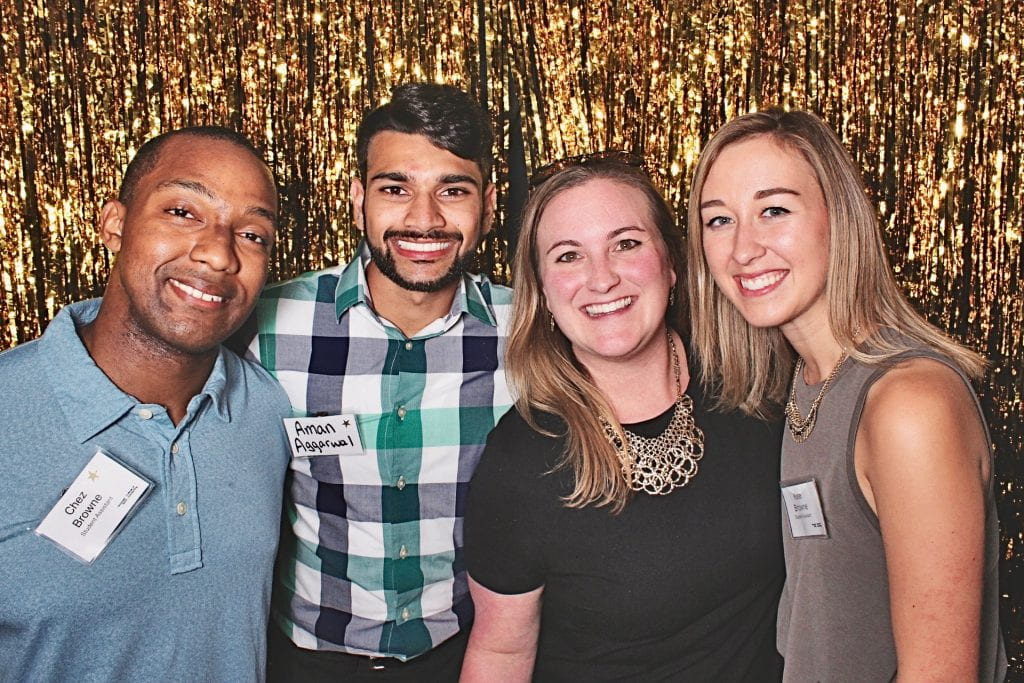
How do you think computer science as a whole benefits from having strong mentor/mentee relationships?
A field like computer science is unique in that it has applications in every industry. Additionally, the technology and software developed typically impacts every demographic of society. Because of that, it is important that every demographic be represented in this field and have a voice in what is being created to solve problems within their communities. I think for many, especially underrepresented demographics, mentorship plays a vital role in reassuring the mentee that there are others like them – the same interests, background, etc. – that have gone before them and have found their own path to success. It gives the mentee the opportunity to reach out to someone with similar experiences for advice or encouragement. For a mentor, it gives them the opportunity to give back to the next generation, to positively impact the life of someone. And who knows, that relationship, may have been the thing that kept their mentee on the path to pursuing the next major technological breakthrough that will change the lives of a community.
In what ways can we improve on this when it comes to how we recruit and educate our next generation of computer scientists?
I think mentorship, formal and informal, needs to become woven into the DNA of our students, alumni, and faculty. For many of our students, asking for help can be the biggest hurdle they will overcome in their academic, personal, or professional life. If we as a College and as educators can make mentorship a natural part of how we educate students, we will remove the negative stigma that many have about asking for help, ensuring that our students seek out individuals with whom they can develop these personal, and often times, vulnerable relationships – relationships that will provide the next generation with the skillsets and mindsets needed to solve the problems of their generation. When things get tough, or even when we have something to celebrate, we all need that one person, that mentor, that we can go to for support, encouragement, guidance, or even the extra push to take the next step or push past the obstacles ahead.


